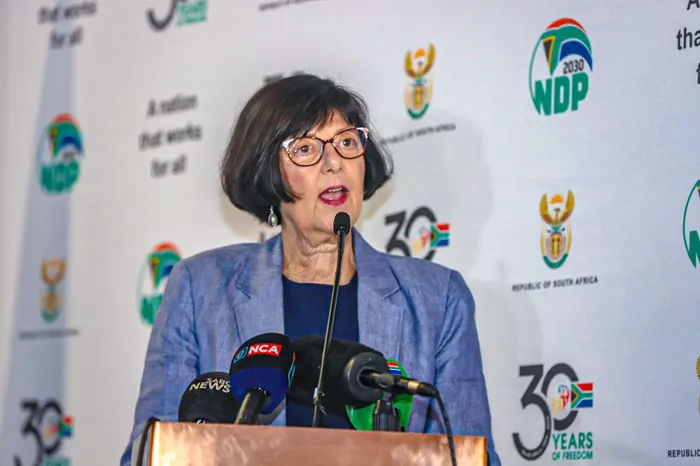Opposition parties slam transport budget for inability to deliver to the working class and the poor

Opposition parties say the Transport Department budget is unable to modernise transport infrastructure.
Image: GCIS
Opposition parties on Wednesday criticised the budget for the Transport Department, saying it was unable to modernise the transport infrastructure and premised on the hope that bringing in the private sector will change make drastic changes.
Speaking during the department’s budget vote in the National Assembly, Transport Minister Barbara Creecy defended the department.
“We are mindful of the important issues many honourable members raised on the centrality of transport to our economy. It is for that reason the entire system is working hard to fix the difficulties we have and ensure we develop a cost-effective service for the movement of people and goods,” Creecy said.
MK Party MP Lucky Montana said the transfer of key strategic sectors of transport to the private sector and foreign investors was at the heart of Creecy's budget vote.
Montana said they were not surprised because Creecy had in her budget speech last year committed to take forward the work of the National Logistics Crisis Committee (NLCC) appointed by President Cyril Ramaphosa.
“The NLCC had not only set the agenda for the minister of transport, but this national roadmap has determined the work of her department, the main driver being the structural reform being implemented in various sectors of the economy,” he said.
Montana also said his party did not have a principled opposition to private sector participation (PSP) or competition in the transport sector.
“The minister clearly does not appreciate how her current policy reforms and the specific private sector model she pursues, if allowed to prevail, will undermine the very capacity of state and sustainability of the transport sector and its ability in the long term to meet developmental needs of the country.
“We say, honourable minister, there are better policy alternatives and there are more efficient PSP models, which could allow the private sector to thrive while addressing the developmental needs of the country,” Montana said.
EFF MP Mazwikayise Blose said the budget was an indictment on the persistent failures of the department that lacked a transformative vision and has the consistent inability to deliver for the working class and the poor.
“How can we support a department that fails to resolve the collapse of provincial and municipal roads. Our people die daily on the roads yet this department is obsessed to celebrate minor victories in road fatalities over an Easter weekend while a week later over 20 people die in a single road accident in the Eastern Cape," he said.
In her response, Creecy clapped back at Montana, saying he has given her a reasonably easy ride.
“I wont, therefore, talk about people who bought locomotives that are too big to fit a tunnel. We don't know who those people were,” she said in reference to the locomotives bought by the Passenger Rail Agency of South Africa when Montana was CEO there.
Unpacking her budget policy speech earlier, Creech said prompt execution of reforms in the logistics sector was essential to address and reduce the risks present in both the global and domestic environments.
“These risks include domestic issues such as port and rail constraints, as well as increased spending pressures, along with global risks intensified by trade tensions and market volatility. Effective implementation of reforms is essential for boosting growth and employment; however, geopolitical tensions may alter foreign direct investment patterns,” she said.
Creecy said they were focusing the work of all of their entities on a common programme to improve passenger, freight and logistics systems over the next four years.
“The first is to ensure that by 2029, 250 million tons of freight are carried on the Transnet network. The second is to improve the speed by which we load and unload ships to the international benchmark of 30 gross crane moves per hour.”
She further said they want to ensure that the passenger rail system provided safe, reliable and affordable transport to workers and their families.
“We aim to ensure 600 million passenger journeys per annum by 2030.”
The department expected 42 million passengers and 1.2million tons of air-freight to move through the airports by the end of the term.
Creecy said they will ensure greater safety on the roads, and reduce the devastating toll road accidents have on lives and livelihoods.
“We aim to reduce road fatalities by 45% by 2029 so we reach the UN target of halving road fatalities by 2030. Fundamental to our rail reform program is our intention to re-establish rail as the backbone of transport for people and goods,” she said.
mayibongwe.maqhina@inl.co.za